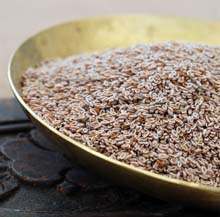
(editor's note: Psyllium belongs to a group of plants known as "bulking agents" that stimulate intestinal activity and are used to treat constipation, diarrhea, colitis and irritable bowel syndrome. Surprisingly, it is also used externally to treat skin irritations.
As more people awaken to the illusion of "modern" medicine they are moving away from pharmaceuticals and treatments that are in dis-harmony with our higher vibrations.
Through this "Natural Remedies" segment I hope to introduce you to methods of healing you may not have tried, as well as building your knowledge base so you can help others.
I have now archived my articles on Facebook: https://www.facebook.com/NaturalRemediesCollection?skip_nax_wizard=true#
~Be well, all my Love, Boo)
Psyllium (Plantago spp.)
This member of the plantain family can grow 12-18 inches tall and has white flowers in cylindrical and spherical forms (much like the shape of our bowel and colon!)
Boat-shaped seeds are contained inside husks and range in color from dark brown to reddish black. The medicinal properties are found in the seed husks and occasionally in the ripe seeds. The outer layer of the husks are rich in mucilage (this is what swells when the husks are placed in water.) They also contain fatty oils, polysaccharides, proteins, glycosides and tannins. (see diabetic caution below)

Since psyllium husks and seeds swell to such a large extent when they're softened in water, they stimulate the intestinal walls to repoduce contractions which helps regulate digestive function. Here's a teaser: psyllium is useful in treating both constipation AND diarrhea! As the psyllium swells in contact with water they pull that water out of the gut, thereby alleviating diarrhea. This same water-binding principle explains how, when used externally as a poultice, psyllium can help with the edema (fluid accumulation) of skin irritations.
Caution: Psyllium must be taken with at least 1-2 cups of liquid (otherwise it forms a hard lump in your gut with the consistency of cement!) Also, don't use this herb if you have an obstruction in the intestines or esophagus. Insulin-dependent diabetics should use the plant only under the supervision of a medical professional.
To retain the effectiveness of their medicinal properties, protect psyllium husks and seeds from light and moisture. In addition, use the chopped seeds within 24 hours as their fatty oil can become rancid.
Internally:
Pour 4-6 oz. of cold water over 1-2 tsp. of the husks and seeds. Let stand 2-3 hours. Drink the mixture with 1-2 cups of water, juice or tea. Because psyllium can delay the absorption of any pharmaceutical drugs you may be taking, wait 3 hours after consumption before taking the drugs.
Externally:
For inflamed or infected skin ailments, pour 1 cup of boiling water over 1-2 tsp. of calendula flowers. Steep 10-15 minutes then strain. Add 2-4 Tbsp. of psyllium husks and seeds and let stand until a paste forms. Apply the warm paste to the affected area for 20 minutes then rinse off with warm water. Repeat 2-3 times daily.
For bee stings and insect bites, mix 1 tsp. of dried psyllium husks, 1/2 tsp. of powdered dried yarrow and 1 tsp. of powdered dried calendula flowers. Pour 1 cup of hot water over the blend and steep for 15 minutes. Apply the paste to the stings for 15-20 minutes then rinse off gently without rubbing the skin. Repeat 3-4 times a day until the itching stops.

